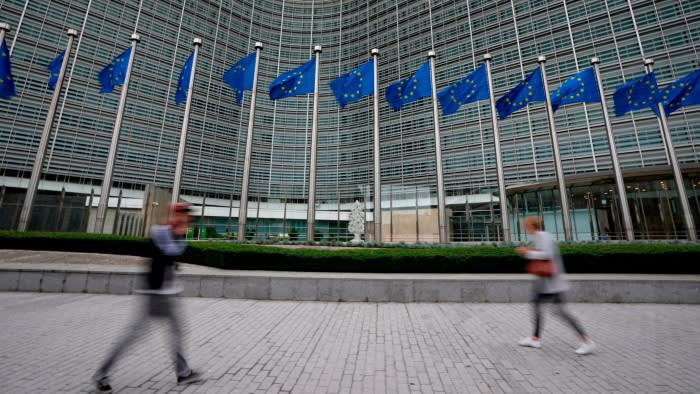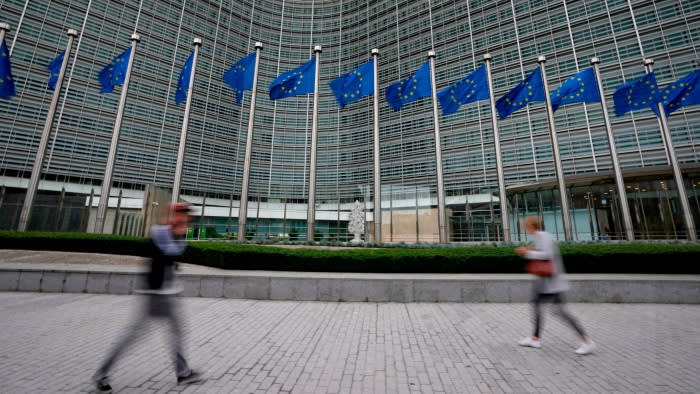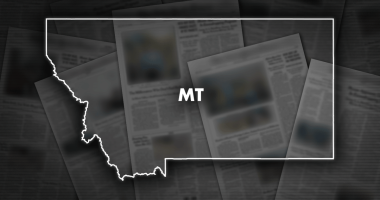
More than a dozen smaller EU states are mounting a fightback against efforts to unify Europe’s fragmented capital markets, highlighting the torturous politics around the decade-long financial reform effort.
France recently led a push — backed by Italy, Spain, the Netherlands and Poland, some of the EU’s biggest economies — to revive reforms to deepen market integration and centralise supervision.
Paris argues the overhaul of financial markets would help tap private capital for Europe’s huge investment needs in defence and the green transition, which run to hundreds of billions of euros a year.
But the steps have been staunchly opposed by a majority of the EU’s 27 member states, who are wary of ceding national control and handing more oversight and regulatory powers to Brussels.
“We as a small country, we don’t have many competitive advantages, but having a very competitive tax system is what we have, so please don’t take it away from us,” Estonian Prime Minister Kaja Kallas said on Thursday.
It sets the stage for a heated debate among EU leaders gathered in Brussels, who seized the matter of how to advance the so-called Capital Markets Union (CMU) from finance ministers after more than a decade of work led to underwhelming results.
“The leaders are going to argue about this, and it’s useful to get the truths of these positions out there in the open,” said a senior diplomat involved in the pre-summit negotiations.
One country that could tilt the balance is Germany. Although Berlin has traditionally opposed further centralisation of supervision, it recently backed a revival of the CMU project, suggesting at least some part of Germany’s ruling coalition are in favour.
Finance minister Christian Lindner, a liberal, remains opposed to giving Brussels oversight powers on the grounds that it would create additional costs for its financial industry.
But Chancellor Olaf Scholz, a socialist, said at a recent EU summit that integrating capital markets should be a top priority to try to reverse Europe’s capital outflow to the US, according to two people briefed on leaders’ talks.
“This is the first time that there has been strong political will. This is a necessity to be able to finance our transition, productivity, defence and social needs,” said one EU diplomat, who backs the reforms.
Draft summit conclusions, which are still under negotiation, call for moving “without delay” on measures to “create truly integrated European capital markets”. Listed actions include giving the EU financial markets supervisor, the Paris-based Esma, direct oversight of “the most systemic relevant cross-border capital and financial market actors”.
They also call for harmonising insolvency and corporate tax laws, developing an EU-wide investment product to leverage Europeans’ private savings and encouraging securitisation by tweaking prudential regulation.
Such measures were elements of the vision for the CMU outlined almost a decade ago and remain highly contentious.
At a meeting of EU ambassadors on Wednesday, Luxembourg led a group of states raising objections that included Austria, Bulgaria, Cyprus, the Czech Republic, Ireland, Croatia, Baltic countries, Malta, Romania and Slovenia, according to five people familiar with the discussion.
These countries fear centralising supervision would create additional cost for their national financial industry and give larger markets a competitive advantage. Some also oppose harmonising taxation law, a thorny issue in the EU that requires unanimous backing.
Luc Frieden, Luxembourg’s premier, said the EU capital market reforms needed to avoid over-regulation and over-centralisation, “which some countries endorse”. “We want a pragmatic approach,” he added as he arrived at the Brussels summit on Wednesday.
Centralising supervision is “not in the best interests of all member states and certainly not in the best interests of smaller member states”, Irish Prime Minister Simon Harris said on Thursday. “We are not in the business of wishing to see any harmonisation in relation to our corporate tax laws.”
“We don’t agree with this top-down approach. We have a number of capital markets across Europe, we support bringing them together and growing them up, rather than throwing them all in together right away,” said another diplomat representing a state with reservations. “You can’t just do that in one whole swoop.”
Charles Michel, who as European Council president is chairing the summit, acknowledged that centralising supervision was likely to be the most controversial point among leaders, who need to act unanimously to endorse a way forward.
“The only way this moves forward is if we get a true sense of where people really stand,” said the senior diplomat.
Additional reporting by Laura Dubois
Read More: World News | Entertainment News | Celeb News
FT










